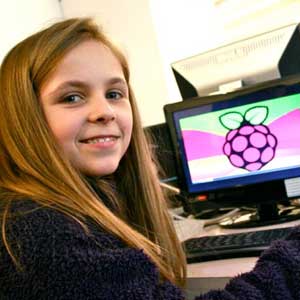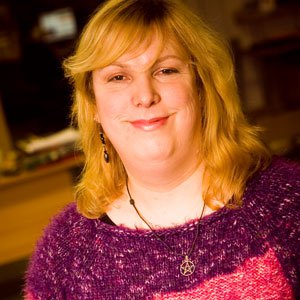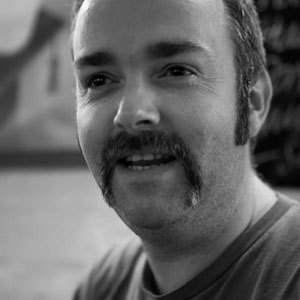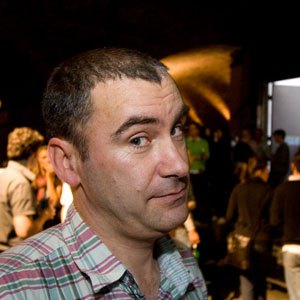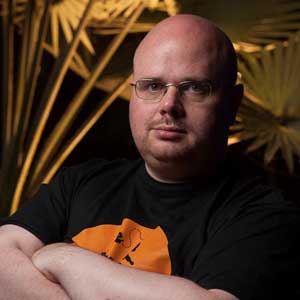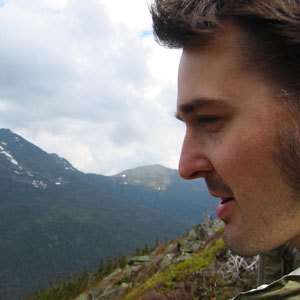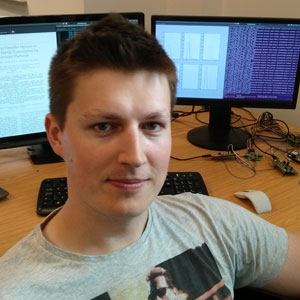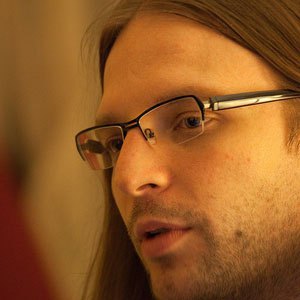
New Directions in Collaborative Editing
Blaine Cook (@blaine)
The internet is a huge social experiment, one that's already had a massive impact on all aspects of our society. We're still only part-way to the original vision of the web, however. This original vision included not only easy access to web pages, but also collaborative editing. What's been standing in the way of that vision? Why aren't we regularly editing documents in a collaborative fashion? This talk will discuss some of the reasons true collaborative editing has been so difficult to implement and show some potential solutions to the issues.
Blaine Cook a London-based sociotechnologist, a hacker dissatisfied by simply building software. His long-term obsession is fostering anarchic networks as a counterpoint to the centralised systems that have come to dominate the web over the past decade. Through numerous collaborations, he has developed protocols and concepts that are forming the basis for many social Internet technologies yet to come. His past work as the founding architect of Twitter has seen broad adoption both culturally and technologically. He is currently working on Poetica, a tool to bring online collaboration tools to writers.
The Importance of Mini Makers
Amy Mather
14 year old Amy Mather discusses why the maker culture is so important to the younger generation and introduces us to her idea of a Mini Mini Maker Faire, where only under 18's would be able to exhibit their creations.
Amy Mather, a.k.a. MiniGirlGeek, has been making and coding for 18 months with the guidance and support of the community that she found at Manchester's MadLab and hackspace. Amy was the closing keynote speaker at the world's first Raspberry Jamboree event, speaking alongside Professor Steve Furber and Pete Lomas of the Raspberry Pi foundation. Amy also presented at the inaugural event RSA FutureMaker event at London's Somerset House, where she also ran a workshop introducing attendees to the world of sewable electronics.
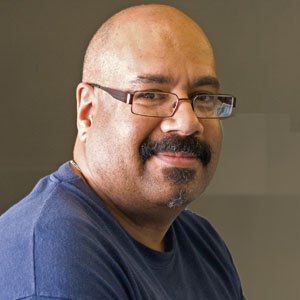
WordPress has Grown Up
Mike Little (@mikelittlezed1)
In the last 10 years, WordPress has grown from a small blogging tool to a fully fledged web site development platform and beyond that supports a multi-million dollar industry. Not bad for an open source project no-one owns. I'll take you on a tour through some of the incredible sites and more that have been built on WordPress.
Mike Little is the co-founder of WordPress, and founder and director of Zed1.com Ltd, a WordPress specialist web development consultancy. He has developed many web sites for clients including a number of UK government web sites and an award-winning educational science engagement site.

Digital Serfdom and how to avoid it: a guide to the future.
Aral Balkan (@aral)
Imagine a world where you are not allowed to own your own home. Your rent is cheap, or even free, but there is a tiny caveat: your landlord watches everything you do and sells that information to their real customers: other businesses.
If you use Google, Facebook, or any of the plethora of other ‘free’ online services, you live in this world today. It is a world of Digital Serfs.
We can build a different world.
A freer world.
In this talk, Aral will show you how.
Aral Balkan is an experience designer working to change the world by bringing design thinking to open source. His latest project, Prometheus, is an ambitious initiative to build a beautiful new mobile platform that empowers regular people to own their own data. He is an award‐winning speaker and a board member of CodeClub
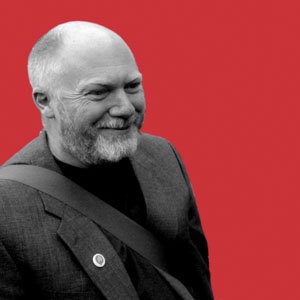
GOV.UK: Design Principles and Lessons Learned
Paul Downey (@psd)
In 2011, Martha Lane Fox published an influential report on the state of for Government, advocating "revolution, not evolution" and calling for government to act as a "wholesaler as well as the retail shop front for services and content by mandating the development and opening up of Application Programme Interfaces (APls) to third parties". This talk examines the Design Principles behind the UK Government Digital Service APIs, the lessons learnt from building the GOV.UK publishing platform and transactional services on APIs, and how these design principles are now being applied to enable departments and agencies across government to transform transactions and services into becoming "digital by default".
Paul Downey is a Technical Architect at Her Majesty's Government Digital Service, where he is helping build GOV.UK and working with departments to build examplar digital services. Formerly he acted as BT's Chief Web Services Architect, served as an W3C Advisory Committee representative, and was a founding member of Osmosoft.com. He co-built SolderPad, and co-founded OSHUG, the Open Source Hardware monthly meetup with Andrew Back, and is mildly notorious for a set of uber-doodles collectively known as The Web is Agreement.
White Space — Connect all the Things!
Ben Ward (@crouchingbadger)
White space spectrum may hold the key for wide-area sensor networks. Find out how we can all enable the Internet of Things with this new technology.
A Basic Introduction to Interfacing for the Hardware Curious
Melanie Rhianna Lewis
So you've got a Raspberry Pi or Beaglebone and now you want to connect some hardware to it. You know basically what you want to do but you're feeling a little bit lost in the jargon?
Melanie guides us through the basics of hardware interfacing typical of embedded systems and how to approach programming them with some basic electronics theory that will be useful to the beginner hardware hacker.
Melanie Rhianna Lewis started a life long love of electronics as a child when her Dad helped her make a "crystal" radio with an ear piece, a coil of wire, a diode and a radiator! Melanie currently works for an embedded device consultancy near Bradford where a lot of her work is with ARM processors.
Polling is for Wimps
Paul Tanner (@paul_tanner)
They say that, if the only tool you have is a hammer, everything looks like a screw. Don't get me wrong, I love REST. It's great for posting data and one-off access. However, REST is not a good way for IoT actuators to get their instructions from a controlling system. Paul will discuss his experiences with Sockets, XMPP and MQTT. One of which will usually be a good solution for most implementations.
In each case arguments for and against will be presented, in the context of systems that must operate in near real time with low power budgets. Relevant open source technologies will be referenced. For a case example we’ll use the MQTT system that Paul and Adrian Godwin have been building for an experimental, thermally-efficient new build home.
Paul Tanner is a consultant, developer and maker in wood, metal, plastic, electronics and software. His day job is IT-based business improvement for SMEs. By night he turns energy nut, creating tools to optimise energy use. Paul graduated in electronics and was responsible for hardware and software product development and customer services in several product and service start-ups, switching to consulting in 2000.
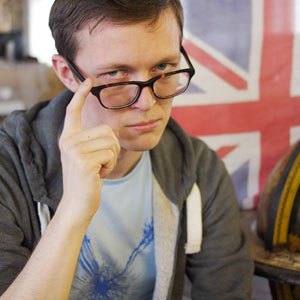
Looking after an Open source community
Orta Therox (@orta)
CocoaPods is the third most active organisation on github after rails. (http://twicsy.com/i/KHsEQd) Keeping that running smoothly is a team effort.
Orta talks about the lessons he's learned while looking after a busy open source community.
Orta Therox is an iOS developer at Artsy, building beautiful portfolio apps for some of the biggest Art galleries in the world. Encouraged by Artsy's awesome commitment to open source he regularly devotes time to working on and around the CocoaPods ecosystem.
Building tools like CocoaDocs, maintaining the Specs repository, pruning the documentation and working on a big-rebranding. If the CocoaPods team had fancy titles, you'd probably call him a community manager.
Risking a Compuserve of Things
Adrian McEwen (@amcewen)
More and more companies are staking a claim to be the platform for the Internet of Things. Should we be aiming for a more open Internet of Things? Is the platform for the Internet of Things not just the Internet? Adrian McEwen will be exploring some of the challenges in implementing the Internet of Things and suggesting ways to improve collaboration and interoperability.
Adrian McEwen has been connecting odd things to the Internet since the mid-90s. Starting with cash registers, and then as part of the team who were first to put a web browser onto a mobile phone. For the past five years he's been working with the Internet of Things.
Adrian founded MCQN Ltd, an IoT consultancy and product company, which is based in DoES Liverpool - a hybrid makerspace and office, which he set up with some friends. He's putting the finishing touches to a book — Designing the Internet of Things — and also working as CTO of start-up Good Night Lamp.
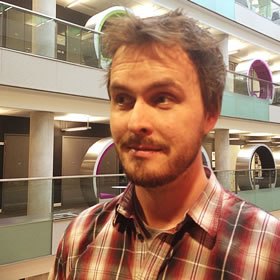
Flux & Flexibility
Dan Donald (@hereinthehive)
The web is and has always been a vast collection of linked documents spread across the Internet and yet the way we think about it and how we work with it changes all the time. Responsive web design has given us a recipe for managing the innate flexibility of the web but as we delve deeper, we find challenges through almost every aspect of creating for the web; through design, development and writing copy through to how we work and communicate as teams and with our clients. The more we embrace flexibility, the more the pace of change continues.
Dan Donald, based up near Manchester, currently tinkers with web things at BBC Sport, tries his hand from time to time at speaking, and tweets nonsense as @hereinthehive. When not webbing it up he makes noise in Mark of 1000 Evils and stacks up side projects he’ll never get to.
Introduction to Robot Operating System
Nick Weldin (@tinkernick)
This talk will provide an introduction to ROS, explaining what it is, how it works and some of the things it can do. There will also be a practical demonstration of a robot running ROS.
Nick Weldin initiated the first public Arduino course in the UK in 2005, because he didn't want to program PIC chips on the accounts computer at work after everyone else had gone home any more. When Tinker London started up he joined them and ran courses teaching Arduino wherever anyone was interested. He is co-author of the Arduino Cookbook and now works for Middlesex University.
Building a Maker Business: Sharing, Education, Open Source and Conscience.
Paul Beech (@pimoroni)
How open are you prepared to be when starting a business? Explore the wonderful shades of grey in the moral and legal landscape, as well as the risks and benefits to your survival in those early days, with war stories from Pimoroni's first year of existence.
Paul is a co-founder of Pimoroni, makers of the Pibow, Picade and other things Raspberry Pi. He also designed the Raspberry Pi Logo, and was somewhat responsible for the short-lived Interactive DVD phenomenon. He lives in Sheffield, in the Pimoroni workshop, because that's where all the good toys are. He prefers small-scale subtractive manufacturing processes. (Photo © Light & Dark Photography)

Crazy challenges, Impossible odds and digital duct tape
Shay Moradi (@organised)
As well as disrupting the space of libraries, RITH has been known to work on challenges for the Gadget Show and Stephen Fry's Gadget man. Against seemingly impossible odds, they build Battlefield Simulators, make dog translators, build virtual referees and tear down buildings collaboratively.
Shay shares the story of how you get to do crazy challenges for TV with superlative amounts of enthusiasm, a healthy dose of scepticism and at times, various forms of digital duct tape which get the job done!
Shay is a partner at (RITH), an independent design and development studio based in Huddersfield, and he is also the co-founder of Librarygame. Shay has spent equal amounts of time in the design industry and in teaching, where he was once a full time digital media design lecturer and co-author of a one time Amazon graphic design category best-seller, 'Designing Imperfection'. In his spare time, Shay draws little pixel canvases and makes a mean peanut butter & jam sandwich.
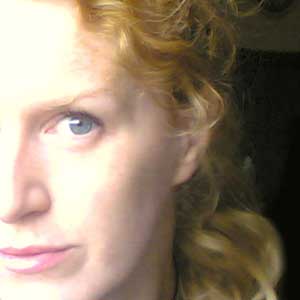
Falling in love with your product’s users, for fun and profit
Chris Atherton (@finiteattention)
"It's not about you. It's about them. The presenter who loves his audience the most, wins".
That's Seth Godin, talking about giving a great presentation — but his advice could just as easily apply to creating a winning user experience. The best projects I've ever been involved in have been those where I got into bed — figuratively — with the product's end users. Meeting the people who'll be using the thing you're building is vital, because if you don't get to know them, how can you possibly get to like them?
Because getting you to fall in love with your users seems like kind of a big ask for a half-hour presentation, in this session I'll suggest some practical techniques you can use to help you start planning and having those conversations. Along the way, I'll talk about Death By PowerPoint, wrangling teenagers, separating best friends, and drawing maps. Bring a pen.
Chris Atherton used to research and lecture in psychology, but she's feeling much better now, thanks. Chris is a software user experience consultant who uses cognitive science and shonky sketches to create better digital stuff.
She's conducted user research for Skype, developed information architecture at the BBC, designed digital strategy for Time To Change, and most recently, led UX design on a GOV.UK spin-out project at the Home Office. Chris tweets about user experience, cognitive science, and shiny things on the internet at @finiteattention.
The @ShrimpingIt Manifesto
Cefn Hoile (@cefn)
Electronics engineers find it trivial to build an Arduino-compatible circuit on a breadboard using components which are just one tenth the cost of an official Arduino board. The @ShrimpingIt
project curates open resources and projects so that everyone can progress their prototyping with simple components and materials, just like the experts. The approach delivers a whole host of benefits for those learning to prototype - not just saving money.
We'll be introducing the project, sharing the choicest cuts from our year's experience running it, and featuring lots of the great spin-off projects people have built on our work. The @ShrimpingIt manifesto combines insights from open design and community engagement, arriving at a challenging standpoint of how beginner microcontroller projects should be designed, presented and taught for a better tomorrow.
Cefn Hoile sculpts open source hardware and software, and supports others doing the same. Drawing on ten years of experience in R&D for a multinational technology company, he works as a public domain inventor, and an innovation catalyst and architect of bespoke digital installations and prototypes, working most recently with Tinker.it, BT, the BBC, EDF, Nokia.
Cefn is a founder-member of the Curiosity Collective digital arts group, and a regular contributor to open source projects and not-for-profits. He is currently completing a PhD in Digital Innovation at Highwire, University of Lancaster.
Measuring Energy Consumption in Embedded Systems
James Pallister
How energy-efficient are your programs and how long will your devices last on battery power?
Particularly when writing bare-metal applications, we have a great deal of control over how much energy the processor and hardware connected to it consumes. In this talk I discuss how we can accurately measure the energy consumption of our devices, and techniques that we can use to extend battery life.

How WebRTC Will Change the Connected World
Tim Panton (@steely_glint)
WebRTC provides free, secure peer-to-peer realtime voice, video and data communications to anyone with a browser and a microphone. It requires no plugins or downloads and allows websites to host their own realtime communities.
This talk will cover the design goals of WebRTC and walk through code examples and live demos that illustrate what it can do on a variety of devices.
Tim Panton is a software engineer with a particular interest in projects that blend web applications and person-to-person speech into an integrated user experience.
Tim is currently working on the Phono.com, Tropo.com and Rayo.org products at VoxeoLabs, producing web developer-friendly APIs by using XMPP protocols to drive innovative telephony applications that can be used anywhere by anyone.

Compére
Gareth Halfacree (@ghalfacree)
Gareth Halfacree is a freelance technology journalist and the co-author of the Raspberry Pi User Guide, alongside project co-founder Eben Upton. He also writes the maker-centric Hobby Tech column for Custom PC Magazine, as well as numerous features in magazines including PC Pro, Linux User & Developer, Micro Mart, Computeractive and others.
Formerly a system administrator working in the education sector, Gareth's passion for open source projects has followed him from one career to another and he can often be seen reviewing, documenting or even contributing to projects including GNU/Linux, LibreOffice, Fritzing and Arduino. He is also the creator of the Sleepduino and Burnduino open hardware projects and numerous small software tools, all released under permissive licences.
